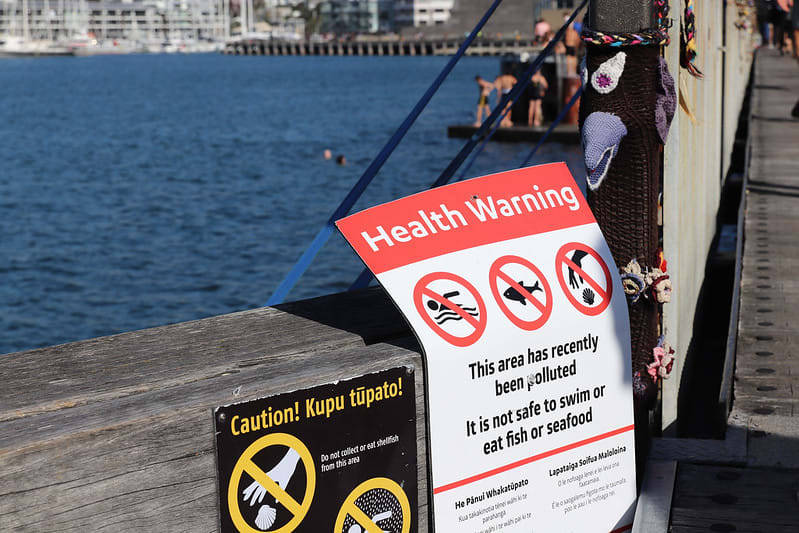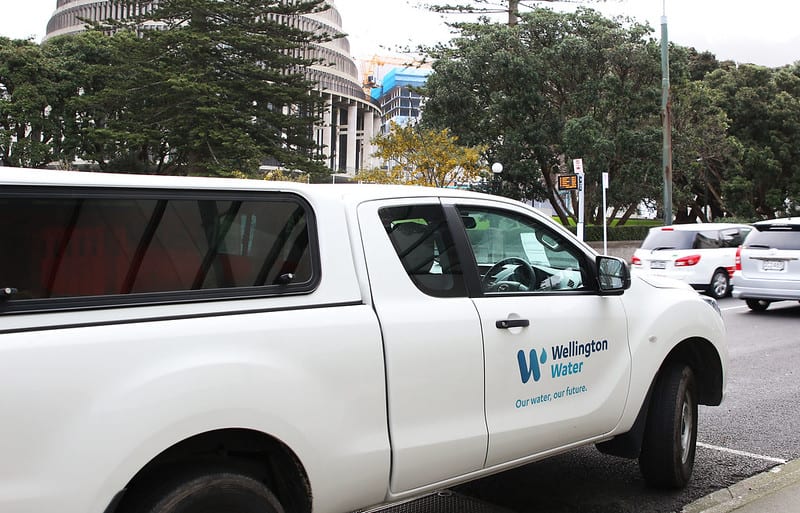Minister Nanaia Mahuta tells Wellington city councillors eyeing a Wellington Water restructure that they should tread carefully before bucking a national trend towards consolidation, Dileepa Fonseka reports
Local Government Minister Nanaia Mahuta is defending Wellington’s under fire water CCO after private emails between Wellington city councillors revealed several were advocating backing out of the council controlled organisation, following a summer of sewage leaks and water outages.
“I would caution them to consider this carefully before going backwards,” Mahuta said in a statement to Newsroom.
“It is important to remember that the council-controlled organisation Wellington Water was formed as recently as 2014,” she said.
“The infrastructure at the centre of recent events is very much older than this.”
Mahuta also said “individual councils of the Wellington region” were responsible for how much they invested in water assets, not the CCO itself.
“[They] are each the owners of their own water infrastructure assets and make their own investment decisions on behalf of their rate-paying communities,” she said.
Don’t ‘break up’ lightly, Minister says
A move to break away from the Wellington Water CCO model would cause headaches for the Government’s three waters reforms.
The Government is understood to favour water and assets being managed by five or six large regional entities. Wellington Water and Auckland’s Watercare are examples of the type of the type of regional entities the Government has previously held up as a model for regional collaboration.
These larger entities would be better able to scale and afford the kinds of water quality improvement the Government wants to see.
Mahuta said international experience had shown collaboration, scale, capacity and capability building were important factors in creating and maintaining water assets.
“This becomes even more the case when services and supplies within a region are delivered across council boundaries and questions of resilience, climate change and water security are considered,” Mahuta said.

However, WW is less in control of the money it can put into infrastructure investment than Watercare is.
The CCO does not own any of Wellington’s water assets and does not have the ability to raise revenue through targeted rates like Watercare.
WCC budget figures provided by Infometrics economist Brad Olsen show the council had consistently invested less on a per capita basis in its water network than Auckland had. The ratio had been 2:1 in most years since 2009.
An auditor-general report in 2014 also found councils around the country reinvested in water assets at a rate lower than those assets depreciated.
The gap between depreciation and reinvestment could grow to $6-7 billion nationwide by 2022 the Auditor-General said.
Multiple investigations into Wellington Water
Wellington City Council has wasted no time accusing the entity of mismanagement after the summer of sewage that Infometrics economist Olsen termed “the biggest wake up call the city has ever had”.
On Thursday a notice of motion at a council meeting called for a wide-ranging inquiry, the same day a separate Mayoral taskforce was launched, and last week an emails leak revealed WCC CEO Barbara McKerrow had launched her own internal review of Wellington Water too.
The onslaught prompted others including Wellington Chamber of Commerce CEO John Milford to defend the CCO. He released a fiery public statement on Friday that asked the capital’s politicians to stop “finger pointing” over the crisis.

Two Wellington regional mayors, Porirua’s Anita Baker and Hutt City’s Campbell Barry, also defended Wellington Water’s performance in interviews to Newsroom last week, as did Infrastructure NZ CEO Paul Blair.
Barry said Wellington Water was not to blame for a major backlog of repairs and maintenance that needed to be done in Hutt City.
Past councils had gone to Wellington Water with a “funding envelope”, a budget that they could afford and infrastructure investment was made to fit within this envelope, he said.
“That approach of trying to fit long-term investment in infrastructure into an envelope, rather than saying ‘hey, what is the issue we’re trying to solve here’, has meant that the right advice wasn’t being received.”
The problems of water infrastructure investment were also foreseen by the Auditor-General in 2014 who said water assets were being “run to failure” by councils.
“[That] meant waiting until a component stopped working before replacing it, rather than replacing a component before it failed,” Lyn Provost, auditor-general at the time, wrote.



